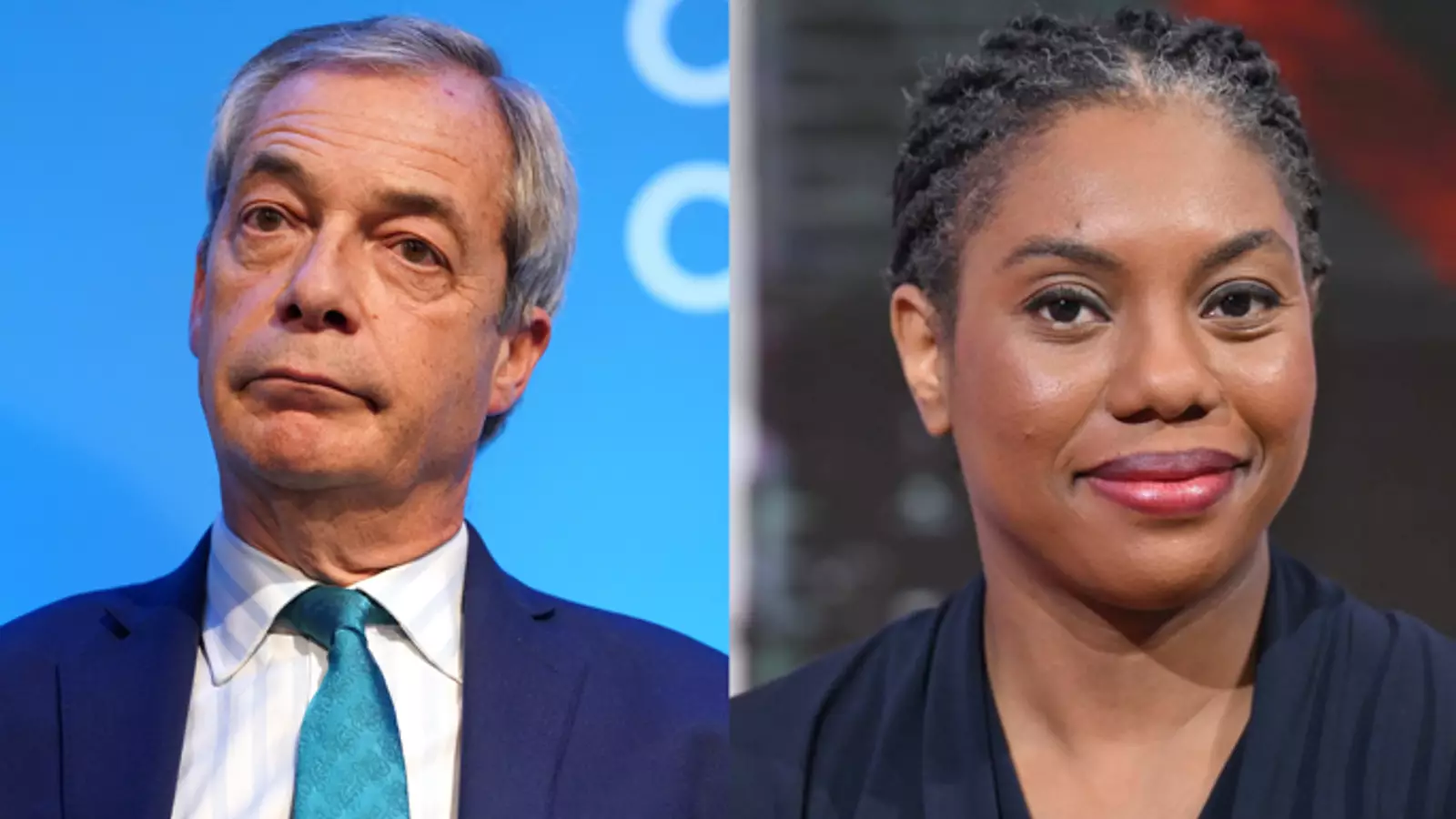In a political climate that seems to be undergoing seismic shifts, the latest YouGov poll for Sky News reveals striking insights into the growing influence of Reform UK, a party led by Nigel Farage. This emerging challenger is not only rivaling the established Conservative Party, led by Kemi Badenoch, but is also shifting the narrative around voter sentiment and party branding in the UK. The analysis of the polling data uncovers significant vulnerabilities within the Tory camp, leading to questions about their long-term viability.
The poll data indicates that voter perception of the Conservatives is overwhelmingly negative, with only a meager 10% viewing the party as strong and a staggering 61% perceiving them as weak. Such a stark contrast paints a daunting picture for the Tories, as they grapple with an evident crisis of identity and leadership. The survey indicates that consumers of Tory policies are increasingly disillusioned, a sentiment that is exacerbated by their apparent lack of a clear purpose; just 18% of respondents believe the Conservatives have a defined direction. This lack of confidence is not merely an abstract notion but indicative of a wider malaise affecting the party’s core support.
In juxtaposition, Reform UK appears to harness a more positive image with greater clarity in purpose. As much as 49% of respondents see Reform UK as having a strong sense of direction, a substantial increase compared to the Tories. This indicates a pivotal shift where voters are gravitating towards alternatives that they perceive as more resonant with their values and aspirations. If the Conservatives are failing to articulate their mission, it allows opponents like Reform UK to fill that void, making a case for themselves as the new champions of conservative values.
When it comes to trustworthiness, trust is emerging as a critical currency in political discourse. While assessing trust levels, only 11% of respondents categorized the Conservative Party as trustworthy, with a staggering 65% deeming them untrustworthy. On the other hand, Reform UK reports a slight improvement in this area, albeit with only 19% earning the ‘trustworthy’ label. This discord in trust levels is significant, indicating that voters are quite wary of established parties, and suggests that Reform UK may be emerging as a more credible alternative, at least in comparison.
Given the fluid dynamics within the electorate, the trust gap could be pivotal in the run-up to future elections. Voter trust often influences both turnout and loyalty, underscoring why parties must strive not just for policies but also to rebuild their reputations in the eyes of the electorate.
The polling results further delve into the willingness of voters to switch allegiances, which could have serious implications for both parties. About 56% of respondents say they would never vote for Reform UK, closely mirroring the 55% who reject the Conservative Party outright. These statistics reveal that both parties face similar ceilings regarding their potential voter base, indicating that electoral competition is intensifying.
Interestingly, voters appear to be more prone to shifting from the Conservatives to Reform UK. Among those who voted for Reform UK in the last election, a considerable 46% are unequivocal about not supporting the Tories in the future. Conversely, only 36% of past Tory voters express a permanent disinterest in Reform UK. This might foreshadow a troubling trend for the Tories if they fail to adequately address the concerns that are pushing their base toward new alternatives.
These results serve as an urgent call for reflection among Conservative Party leadership. The stark contrasts drawn between the two parties compel a need for rejuvenation within the Tory ranks, emphasizing the importance of not just policy-making but also brand revitalization. The rise of Reform UK signals a fundamental reshaping of the UK’s political landscape, where voters are increasingly willing to explore alternatives. To regain footing, Tories must take decisive action to reconstruct their narrative, earn back trust, and reclaim their sense of purpose. The evolving electoral dynamics suggest that failure to adapt could leave the Conservatives ensnared in a prolonged struggle against emerging rivals.


Leave a Reply